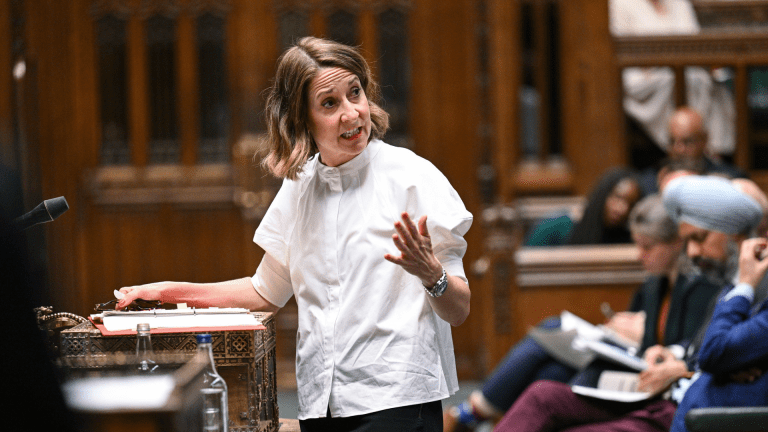Fortunately, Nacro managed to get back in contact, helping him with financial support and into accommodation. Now – with the stability of a roof over his head – Darren has been able to get off drugs and can begin to look towards a more positive future.
We share this story given that housing secretary Robert Jenrick has described the government’s commitment to ending rough sleeping by 2024 as a “moral obligation to the most vulnerable in society.”
We could not agree more. Just last week, Eddie Hughes – the minister for rough sleeping and housing – reiterated the government’s “ambition to end rough sleeping within this parliament”. He pointed to the progress being made, highlighting a 37 per cent fall in the number of people sleeping rough over recent months, and attributed this fall to actions taken by the government.
And he is right to do so. Through schemes ranging from ‘Everyone In‘ to the emergency accommodation funding scheme for prison leavers, the government, local authorities and civil society came together to get significant numbers of people off the street, and quickly.
By January of this year, more than 37,000 people had been helped into emergency accommodation, which is unprecedented.
The government has shown that, through a sense of urgency and some strong political will, it can be done. We can eradicate rough sleeping. But we can only do so if we tackle the issue of prison leavers being released into homelessness – particularly given that those who have been in contact with the criminal justice system make up a majority of our rough sleeping population.
Advertising helps fund Big Issue’s mission to end poverty
Quite simply, the government cannot hit its own 2024 target without ensuring that everyone leaving prison has somewhere to live.
Housing all prison leavers
The pandemic has shone a light on areas of policy that the government can make huge progress on, when the political will is there. Solutions were found to what had been viewed as intractable issues. Lessons have been learned and need to be applied for the long-term. In the words of our rough sleeping minister, “We are taking into account the lessons learned from our ongoing pandemic response… to inform our long-term plans.”
These “long-term plans” must include a multi-year funding commitment ensuring that everyone leaving prison has somewhere safe to live, with additional support in place depending on need. For those able to live independently, they should be helped to do so through access to deposits for private rented accommodation.
We are calling on the government to commit to this at the upcoming spending review, thereby going beyond its initial one-year and £20m outlay, announced earlier this year, which will support prison leavers into accommodation for up to 12 weeks. It is also vital that this funding, which is being launched across just five of the 12 probation regions, is rolled out across the country.
Supporting the most vulnerable
Covid-19 has exposed just how precarious life can be for so many people across the country, with the most vulnerable needing the government’s continued support as the pandemic lingers.
One thing is for certain – the solutions for ending homelessness do exist. The Big Issue’s urgent plan to Stop Mass Homelessness sets out a nine-point plan that can help stave off the immediate threat of homelessness, while also investing in our future.
Advertising helps fund Big Issue’s mission to end poverty
What keeps us up at night is the threat of mass homelessness, which cannot be defeated without housing all prison leavers. And the pandemic has led people who have never been homeless before, losing the four walls that they call home, because of nothing other than Covid-19 poverty.
Along with a package of measures to support prison leavers, the government needs to act to support the most vulnerable by keeping them in homes and in jobs. This would include suspending no-fault evictions until a Renters’ Reform Act is passed, paying off £360m in debt arrears and providing sustainable training or employment – all actions that can be taken, and now, by the government in its fight against homelessness.
And we need to make sure that releasing prison leavers into homelessness becomes a thing of the past. By doing so, so many people will get the best chance at a second chance, we can stop homelessness and put an end to cell, street, repeat.
*Name changed to protect identity
Campbell Robb is chief executive of Nacro, Lord John Bird is founder of The Big Issue
Hundreds of thousands of people are at risk of losing their homes right now. One UK household is being made homeless every three-and-a-half hours.
Advertising helps fund Big Issue’s mission to end poverty
You can help stop a potential avalanche of homelessness by joining The Big Issue’s Stop Mass Homelessness campaign. Here’s how:










